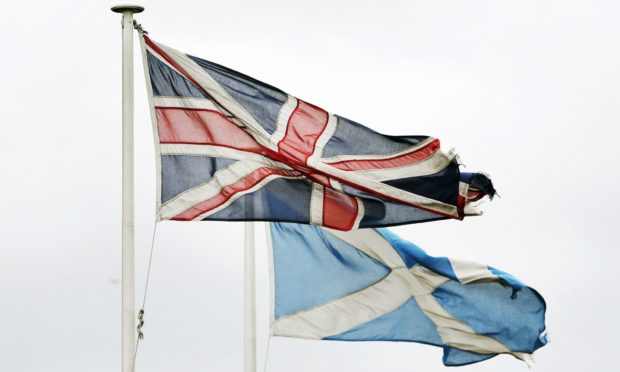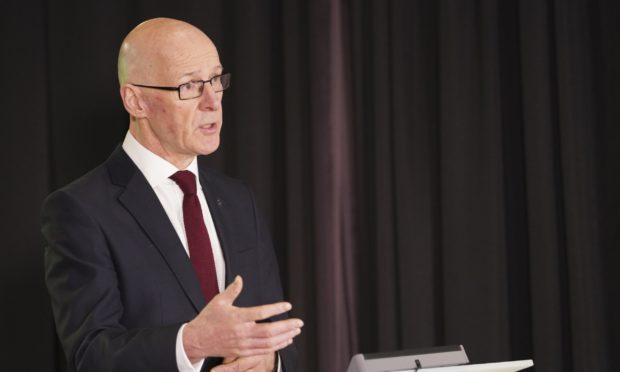Deputy First Minister John Swinney says the Yes campaign will have to “adjust” its blueprint for Scottish independence in the wake of the coronavirus pandemic to make sure it is “relevant and realistic”.
He said the prospectus would have to be “open, and comprehensive and transparent”.
The Perthshire North MSP was speaking to the BBC on Wednesday morning after it was confirmed that work would restart on a second independence referendum, with the aim of delivering it by the end of 2023.
First Minister Nicola Sturgeon told MSPs on Tuesday that preparations would begin to deliver a “detailed prospectus” outlining how an independent Scotland would work.
However, the SNP leader said this can only happen if the country has emerged from the coronavirus pandemic.

The SNP government previously published the Scotland’s Future white paper in November 2013, during the run-up to the 2014 independence referendum.
An updated economic vision was outlined by the Growth Commission report in 2018.
Mr Swinney was asked about potential changes to the prospectus while being interviewed on the BBC’s Good Morning Scotland radio programme on Wednesday.
The Covid recovery secretary said: “There will have to be a financial prospectus, but the financial issues are different for absolutely everybody.
“You look at the decisions the UK Government took yesterday, where manifesto commitments were turned on their head because of the impact of the pandemic.
“So the world is different, and we have to adjust to that, and make sure we have a prospectus that is relevant and realistic for the circumstances that we face.”
So the world is different, and we have to adjust to that, and make sure we have a prospectus that is relevant and realistic for the circumstances that we face.”
Mr Swinney added: “The prospectus has got to be open, and comprehensive and transparent.
“It has got to address the issues that members of the public will have on their minds, and set out the type of vision that we have of what would be the implications of Scotland being able to take the decisions that currently are reserved to the United Kingdom government, to open up the opportunities to collaborate with our European partners in a way that the United Kingdom government has turned its back on.”
